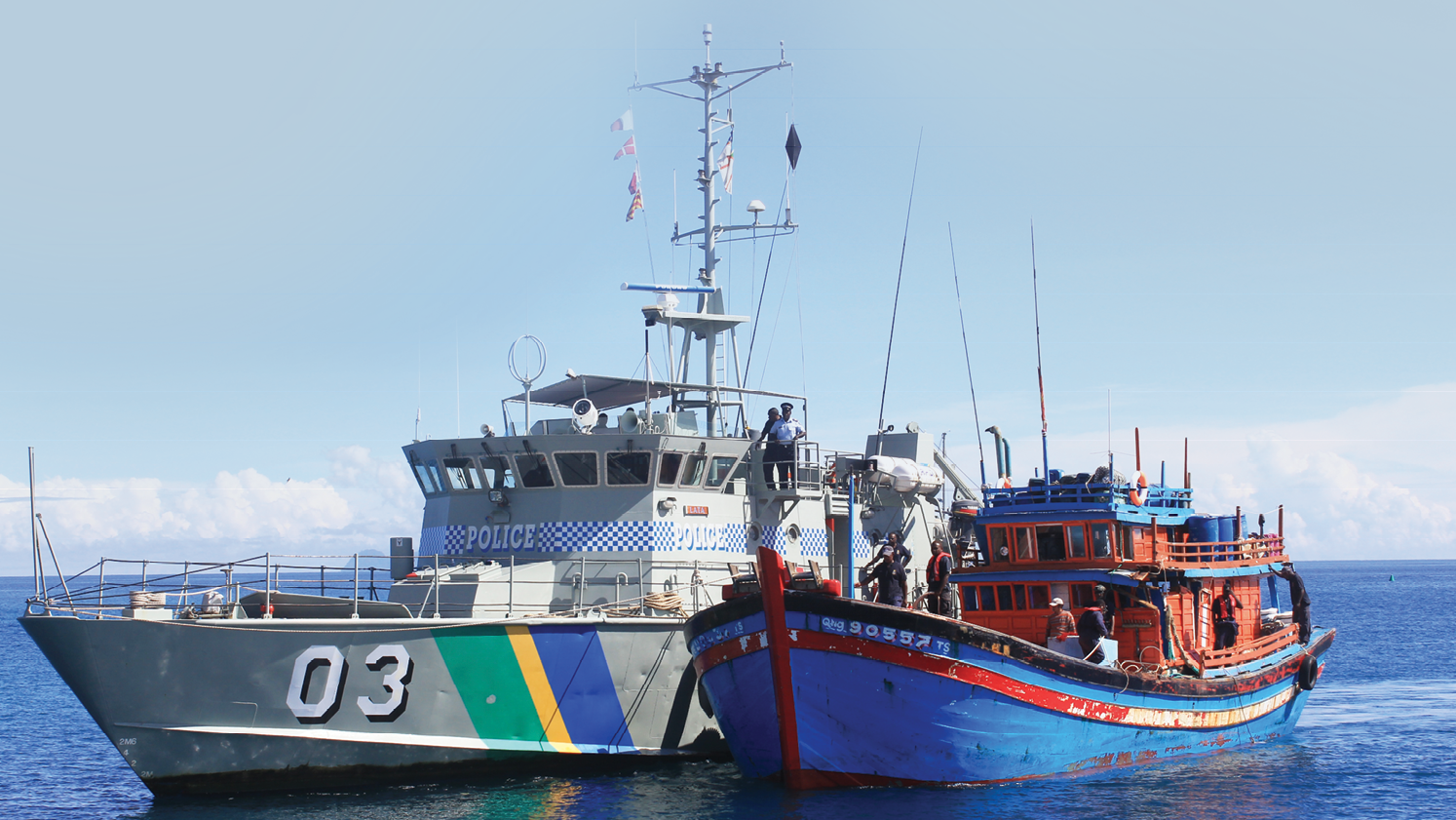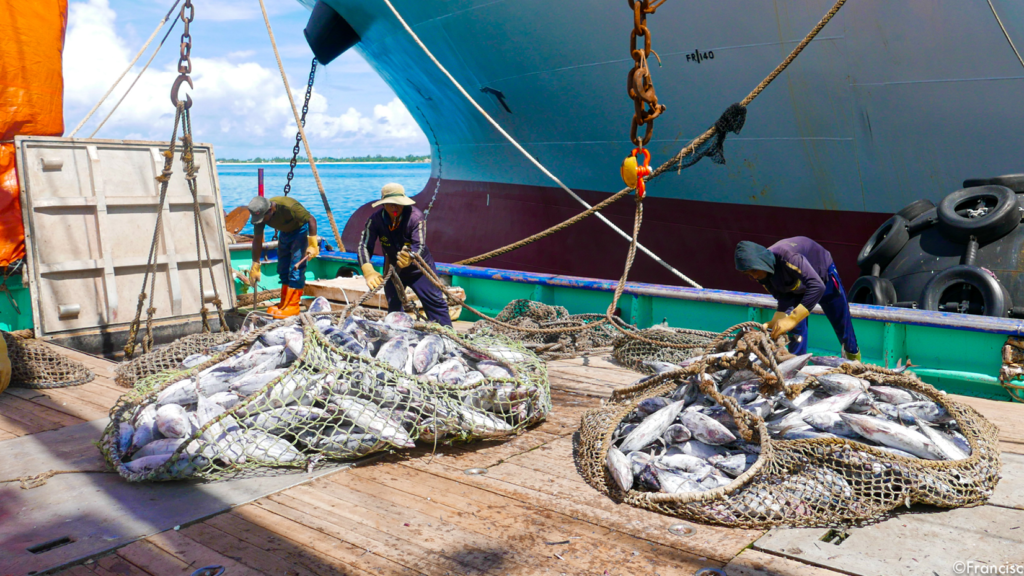Sustainable tuna fishery celebrated
Wednesday 4 May 2022 | Written by Sian Solomon | Published in Features, Go Local

Surveillance officers board a fishing boat. Photo: Francisco Blaha/22050323
The world’s first fully-sustainable tuna fishery has celebrated a 25-year milestone of Western and Central Pacific fisheries partnerships, by launching a 45-page e-booklet on May 2, World Tuna Day.
The e-book describes how successful Pacific Ocean fisheries partnerships have worked with Pacific Island nations such as the Cook Islands to ensure sustainable tuna stocks into the foreseeable future.
In a statement released on Sunday, Coordinator of the Oceanic Fisheries Management Projects (OFMPs) from 2015 to 2021, Hugh Walton, said that the story is in a sense one of ‘David and Goliath’ in the fisheries world.
He added that it was also about developing states, and the wider powers of fisheries operators.
“It is a story of transformational change in fisheries management involving Pacific Small Islands,” said Walton.
Over the past 25 years, a number of successful Pacific Ocean fisheries partnerships have supported the world’s largest tuna fishery — nearly 60 percent of the global tuna catch — to transform it into one of the most effectively managed large-scale fisheries in the world.
The OFMPs were financed by the Global Environment Facility (GEF) and overseen by the United Nations Development Programme (UNDP) from time to time, as well as the Food and Agriculture Organization (FAO) of the United Nations (UN).

They were implemented by the Pacific Islands Forum Fisheries Agency (FFA) in collaboration with its member countries, the Pacific Community’s Oceanic Fisheries Programme, and the Office of the Parties to the Nauru Agreement (PNA).
Pamela Maru, Secretary for the Ministry of Marine Resources in the Cook Islands, said in the e-book: “The (OFMP) programme has really helped successful Pacific Ocean fisheries partnerships to build capacity within our countries; from setting up licensing and deriving economic benefits – to implementing basic information or data collection systems...”
“This resource allows our scientists to go away and do the work, to tell us long-term predictions of what we are likely to see, and how we need to continue managing and then adapting our fisheries management strategies over time.
“(Also) if you compare us to other developing countries where there are tuna fisheries, the amount of information that we hold in our hands here in the Pacific means that we now have a lot of negotiating power for anybody who wants to access those resources,” she added.
“That empowerment is really important and that’s come through information and knowledge – and being able to use that in the most effective way and building up the capacity of the Pacific islands.”














































